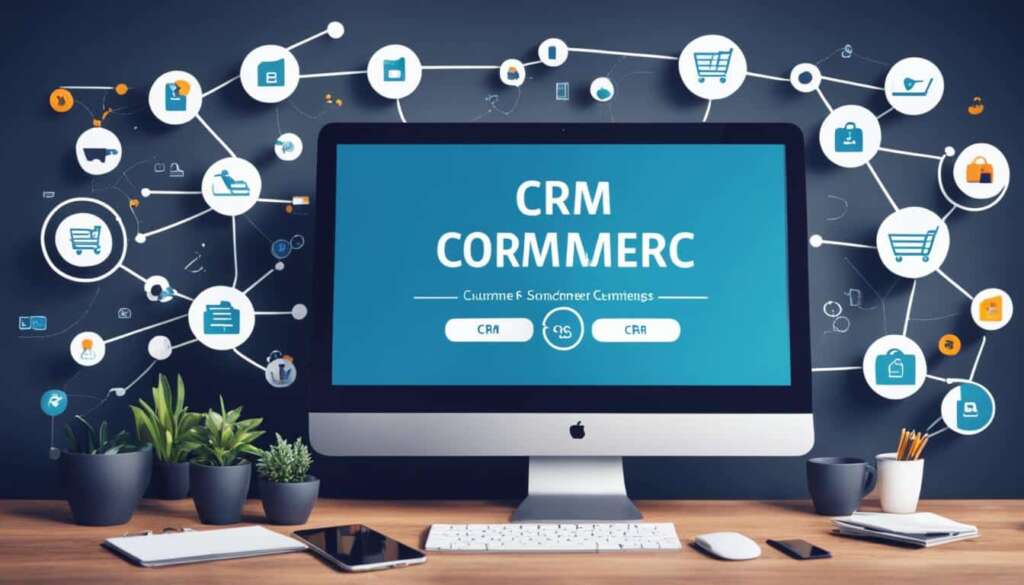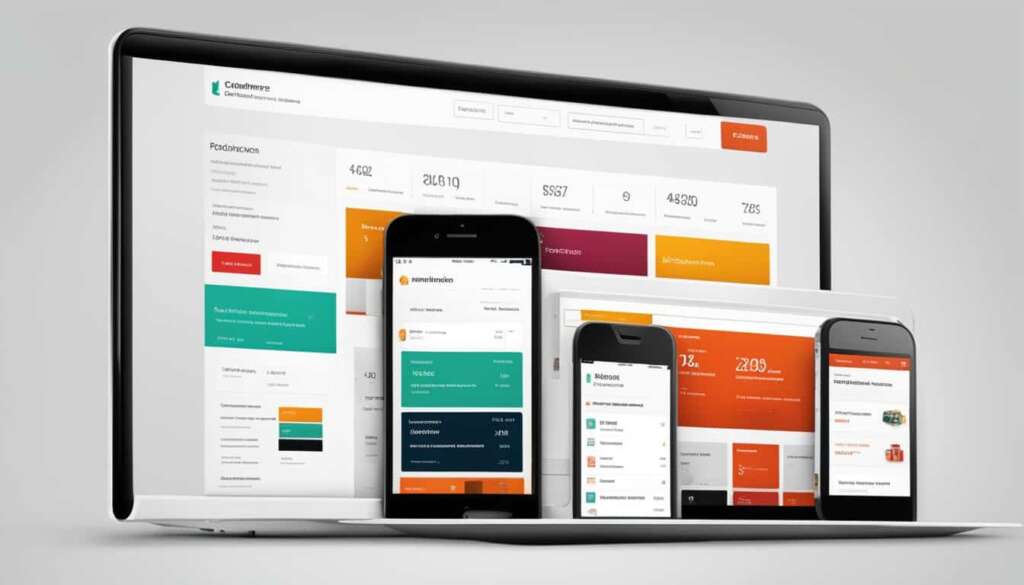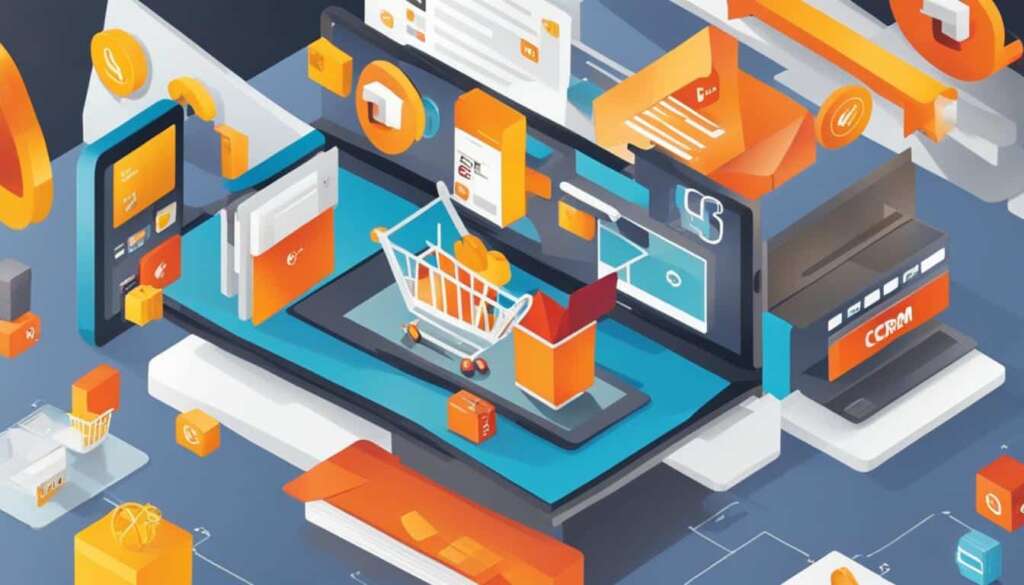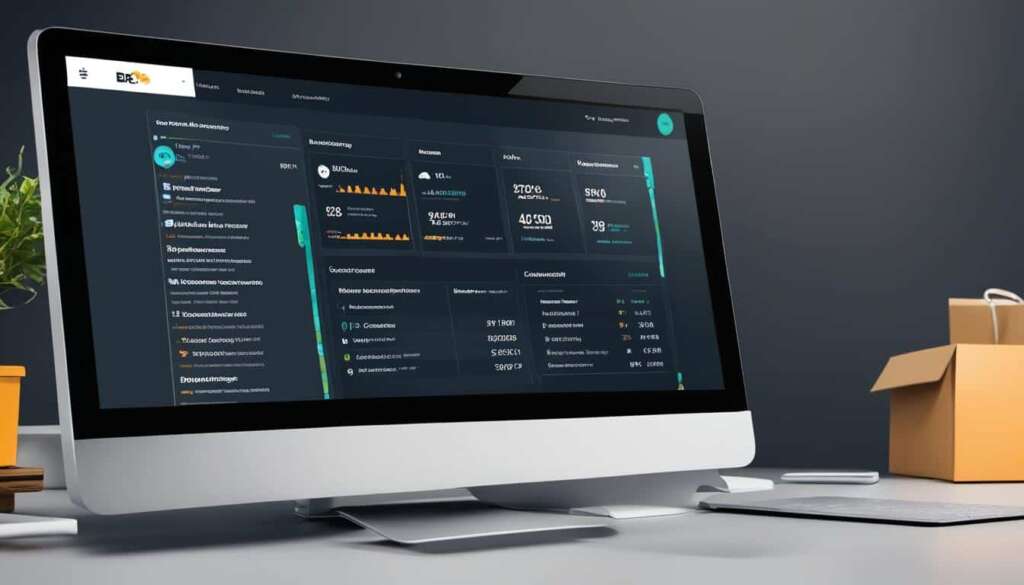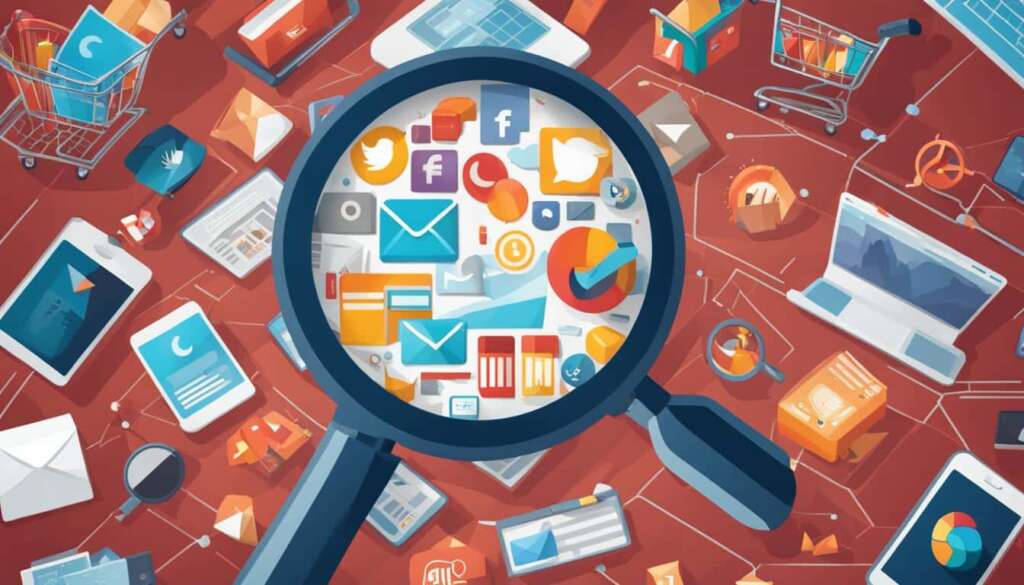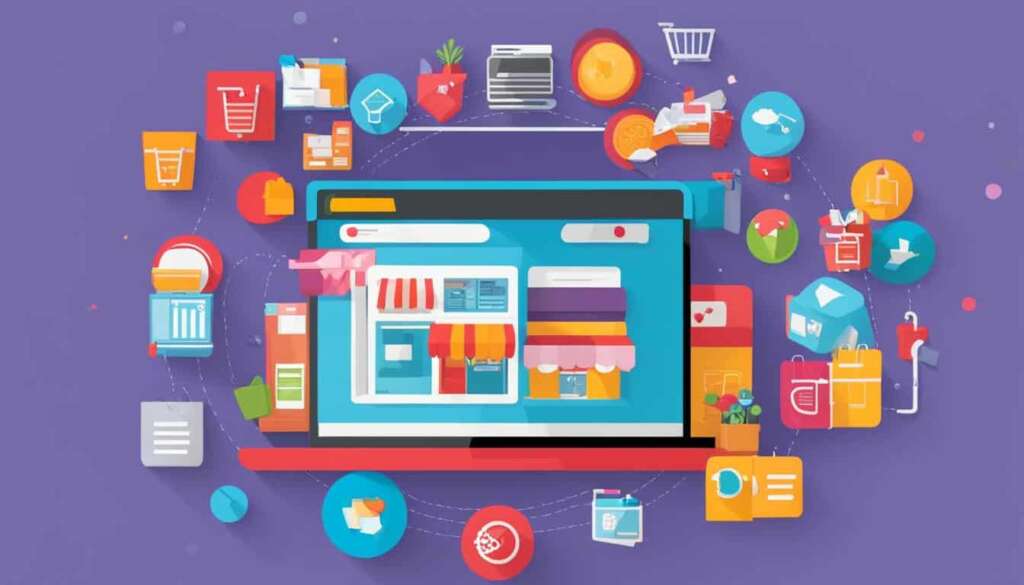Table of Contents
In the fast-paced world of e-commerce, success hinges upon the ability to boost your business, enhance customer relationships, and drive sales. To achieve these goals, businesses are turning to CRM strategies – Customer Relationship Management. By implementing effective CRM practices, businesses can revolutionize their approach to customer interactions, ultimately leading to greater success in the competitive e-commerce landscape.
CRM strategies encompass a range of tactics, methodologies, plans, and ideas that can help businesses leverage customer data to provide a better purchasing experience. By utilizing CRM software, businesses can organize and improve their CRM practices by recording, collecting, tracking, and analyzing relevant customer data. With a comprehensive understanding of their customers, businesses can enhance relationships, build trust, and ultimately drive sales.
So, how exactly can CRM strategies transform your e-commerce business? In this article, we will explore the key strategies that can help you boost customer relationships and achieve e-commerce success.
The Importance of Centralizing Communication Channels
To provide personalized service and speedy solutions to customer problems, it is crucial for e-commerce businesses to centralize all communication channels. This can be achieved with the help of CRM software, which acts as a central hub for managing customer interactions across multiple channels such as WhatsApp, Facebook, Instagram, and the website. By centralizing communication channels, businesses can save time, improve efficiency, and provide a seamless customer experience. This allows for better tracking of customer interactions and ensures that all customer communication is managed in one inbox or dashboard.
With omni-channel customer service, businesses can simplify the customer support process and offer a consistent experience, regardless of the communication channel customers prefer. This approach eliminates the need for customers to repeat their issues or information across different platforms, enhancing their satisfaction and reducing frustration.
“Centralizing communication channels allows businesses to streamline their customer support operations, leading to a more efficient and effective customer service process.” – John Smith, Customer Support Manager at ABC E-commerce
By integrating all communication channels into a centralized system, businesses can improve customer support in several ways:
- Efficient handling of customer queries and complaints
- Quick response times and faster resolution of issues
- Access to a complete customer interaction history for better context
- Collaboration and coordination among support agents
Furthermore, centralization enables businesses to provide a seamless customer experience by ensuring consistent communication and information across all channels. Customers no longer need to switch between multiple platforms or reiterate their concerns, resulting in a smoother interaction and heightened customer satisfaction.
Improved Efficiency with Centralized Communication Channels
When all communication channels are centralized, businesses can improve their operational efficiency in several ways:
- Time-saving: Support agents can access and manage all customer interactions from a single interface, eliminating the need to switch between different platforms.
- Consolidated data: Businesses can gather comprehensive customer data from various channels, providing valuable insights for enhancing customer experiences and tailoring marketing strategies.
- Streamlined workflows: Centralization enables businesses to define efficient workflows and automate repetitive tasks, freeing up support agents to focus on more complex customer issues.
These benefits not only enhance customer support but also contribute to overall business growth by enabling businesses to provide a seamless and consistent experience across all touchpoints.
By centralizing communication channels, e-commerce businesses can improve their customer support efficiency, deliver personalized service, and enhance the overall customer experience. CRM software acts as a central hub that streamlines all customer interactions, resulting in faster response times, improved collaboration among support agents, and better tracking of customer communication. This approach not only saves time and improves efficiency but also contributes to customer satisfaction and loyalty.
Automation and Self-Service Flows for Increased Efficiency
Automation is a key driver in improving customer relationship management in e-commerce. By implementing automated bots and self-service flows, businesses can enhance their customer service processes and significantly reduce the workload on human agents. Automated bots excel at handling basic customer inquiries, providing quick solutions, and freeing up human agents to focus on more complex issues. This strategic allocation of resources optimizes efficiency and improves overall customer satisfaction.
Self-service flows are another powerful tool that enables customers to find solutions to their problems independently, without the need to wait for assistance. By offering easy-to-navigate self-service options, businesses empower customers to resolve issues efficiently and at their own convenience. This not only saves time for both the customer and the business but also fosters a sense of empowerment and satisfaction.
With effective customer service automation, businesses can enhance their customer experiences while improving efficiency and resource allocation. Implementing automated bots and self-service flows streamlines operations, reduces costs, and ultimately contributes to the success of an e-commerce business.
Benefits of Automation in Customer Service
- Improved response times to customer inquiries
- 24/7 availability, providing round-the-clock support
- Consistent and accurate handling of routine customer issues
- Efficient allocation of human resources to complex problems
- Reduction in human error and potential for miscommunication
By automating customer service processes, businesses can achieve a seamless flow of interactions, ensuring faster response times and enhanced customer satisfaction.
Implementing automation in customer service is a strategic move that e-commerce businesses cannot afford to overlook. It not only improves overall efficiency but also allows companies to allocate resources effectively, focus on complex customer issues, and provide personalized experiences where they matter most. By embracing automation and self-service flows, businesses can deliver exceptional customer service and gain a competitive edge.
| Automation Solutions | Features |
|---|---|
| Automated Bots |
|
| Self-Service Flows |
|

Efficient Management of Product Delivery
Efficiently managing product delivery is crucial for ensuring customer satisfaction in e-commerce. By implementing effective product delivery management strategies, businesses can enhance transparency, improve customer satisfaction, and establish proactive communication with their customers.
Real-Time Tracking and Transparency
One of the key aspects of product delivery management is providing real-time tracking information to customers. This can be achieved through the use of CRM software, which allows businesses to keep customers updated about the status and location of their orders. By offering transparency in the delivery process, businesses can instill confidence in their customers and build trust.
For example, customers can receive automated notifications via email or SMS when their orders are dispatched, in transit, or out for delivery. They can also track the progress of their deliveries through a dedicated online portal or mobile app. This level of transparency not only keeps customers informed but also enables them to plan and prepare for the arrival of their orders, resulting in a satisfying shopping experience.
Proactive Communication
In addition to real-time tracking, proactive communication is essential for efficient product delivery management. By proactively reaching out to customers regarding any delays or issues with their orders, businesses demonstrate their commitment to customer satisfaction and ensure that customers are informed in a timely manner.
CRM software enables businesses to automate this communication process, sending personalized updates and notifications to customers based on their delivery preferences. These proactive communications can include information about unexpected delays, alternative delivery options, or any other relevant updates. By keeping customers informed and addressing concerns promptly, businesses can minimize customer dissatisfaction and maintain a high level of customer satisfaction.
Furthermore, proactive communication allows businesses to anticipate and mitigate potential delivery issues before they arise. For instance, if there is a delay in the supply chain or a stock shortage, businesses can notify customers in advance and offer alternative solutions to ensure a smooth delivery experience.
Customer Satisfaction and Loyalty
Efficient management of product delivery plays a vital role in customer satisfaction and ultimately contributes to customer loyalty. Customers who receive their orders on time and are consistently updated about the delivery status are more likely to be satisfied with their overall shopping experience.
By prioritizing transparent communication and efficient delivery processes, businesses can build trust and foster long-term customer relationships. Satisfied customers are more likely to become repeat buyers, recommend the business to others, and contribute to positive word-of-mouth promotion. This, in turn, can lead to increased customer loyalty and the growth of a loyal customer base.
Utilizing CRM Data for Effective Online Marketing
CRM software plays a vital role in collecting and storing valuable customer data that can be harnessed to improve online marketing efforts. By leveraging CRM data, businesses can create personalized marketing messages and targeted campaigns, resulting in increased customer engagement and response.
One effective way to utilize CRM data for online marketing is by analyzing customer data points such as purchase history, open email rates, site visits, and preferred items. This data can be used to design marketing messages specific to each customer segment, ensuring relevance and personalization in communication.
For example, an e-commerce business can create tailored email campaigns based on a customer’s previous purchases, recommending similar products or offering exclusive discounts. This personalized approach not only increases the chances of customer response but also fosters a sense of connection and loyalty.
Benefits of Utilizing CRM Data for Online Marketing
- Improved customer targeting: By using CRM data, businesses can target their marketing efforts towards specific customer segments, maximizing the impact of their campaigns.
- Enhanced customer engagement: Personalized marketing messages enable businesses to connect with customers on a deeper level, increasing the likelihood of customer engagement and response.
- Increased conversion rates: By tailoring marketing messages to individual customer preferences, businesses can improve conversion rates and drive more sales.
- Optimized marketing spend: Utilizing CRM data allows businesses to allocate their marketing budget more effectively by focusing on high-value customer segments and reducing wasteful ad spend.
- Improved customer satisfaction: Personalized marketing messages make customers feel valued and understood, contributing to overall customer satisfaction and loyalty.
A Case Study: XYZ Clothing
“By leveraging CRM data, XYZ Clothing, an online fashion retailer, was able to significantly improve their online marketing campaigns. They used customer data points such as past purchases, browsing behavior, and demographic information to create personalized emails, social media ads, and targeted promotions.
The results were impressive: XYZ Clothing saw a 30% increase in email open rates and a 20% increase in click-through rates. Additionally, their conversion rates improved by 15%, leading to a 25% boost in overall sales. By utilizing CRM data for effective online marketing, XYZ Clothing was able to enhance customer experiences and drive business growth.”
By harnessing the power of CRM data, businesses can develop effective online marketing strategies that deliver personalized experiences, boost customer engagement, and drive conversions. The insights gained from CRM data analysis enable businesses to make informed decisions and create marketing campaigns that resonate with their target audience.
So, if you want to take your online marketing to the next level, start utilizing the CRM data at your disposal and witness the transformative impact it can have on your e-commerce business.
Rewarding Customer Loyalty through Personalization
E-commerce businesses can leverage the power of CRM software to identify loyal customers and enhance their experiences. By analyzing customer data, businesses can identify those who frequently engage with their brand and reward their loyalty with personalized discounts and experiences.
This approach serves as a powerful incentive for customer retention, as it makes customers feel valued and appreciated. Personalized discounts and experiences not only encourage repeat business but also foster a sense of loyalty and connection between the customer and the brand.
Furthermore, loyal customers often become brand advocates, spreading positive feedback and recommendations. This not only strengthens the brand reputation but also attracts new customers, contributing to the overall growth of the e-commerce business.
Personalization is a key driver of customer loyalty. By utilizing CRM software to personalize the customer experience, e-commerce businesses can cultivate long-term relationships and increase customer retention.

Benefits of Rewarding Customer Loyalty:
- Increased customer satisfaction and retention
- Encouragement for repeat purchases
- Creation of brand advocates who spread positive feedback
- Strengthening of the brand reputation
- Attraction of new customers through word-of-mouth marketing
By implementing personalized rewards and incentives through CRM software, e-commerce businesses can build stronger relationships with their customers, drive customer loyalty, and ultimately thrive in today’s competitive market.
Examples of Personalized Rewards and Incentives
| Reward/Incentive | Description |
|---|---|
| Exclusive discounts | Personalized discount codes for loyal customers |
| Customized product recommendations | Recommendations based on the customer’s purchase history and preferences |
| Early access to new products | Loyal customers get first dibs on new releases |
| Birthday surprises | Special offers or gifts on the customer’s birthday |
| Priority customer support | Dedicated customer support for loyal customers |
Building Customer Loyalty through Loyalty Programs
Loyalty programs play a crucial role in building strong customer relationships in e-commerce. By creating exclusive clubs or groups, businesses can reward frequent customers with special benefits and incentives. This creates a sense of exclusivity and fosters a community of loyal customers. Loyalty programs can include rewards such as discount codes, extra brand credits, and cashback offers.
By incentivizing customers to engage more with the brand, businesses can increase customer loyalty and drive repeat purchases. Loyalty programs also contribute to positive word-of-mouth marketing, as satisfied customers share their positive experiences with others.
For example, take the case of Starbucks, a renowned coffeehouse chain that offers the Starbucks Rewards program. Through this loyalty program, customers earn points for their purchases and enjoy exclusive benefits such as free drinks, birthday rewards, and early access to new products. This program has been instrumental in fostering customer engagement and loyalty, propelling the growth of the Starbucks brand.
“Loyalty programs create a sense of belonging and appreciation among customers. By rewarding them for their loyalty, we establish a deeper connection and encourage them to keep coming back.” – Jane Smith, Head of Marketing at Starbucks
Implementing a loyalty program requires careful planning and consideration. It’s important to segment customers based on their purchase behavior and preferences to offer personalized rewards. Regular communication and updates about program benefits can keep customers engaged and excited about the program.
Benefits of Implementing Loyalty Programs:
- Increased customer loyalty: Loyalty programs incentivize customers to choose a brand over its competitors, leading to repeat purchases and long-term loyalty.
- Improved customer retention: By offering exclusive benefits, businesses can retain existing customers and reduce customer churn.
- Enhanced customer engagement: Loyalty programs provide opportunities for ongoing interaction with customers, increasing their engagement and connection with the brand.
- Positive brand perception: Customers perceive loyalty programs as a sign of appreciation from businesses, leading to a positive image and increased brand value.
Key Elements of a Successful Loyalty Program:
| Element | Description |
|---|---|
| Exclusive Benefits | Offer unique rewards and incentives that are not available to non-members. |
| Personalization | Segment customers and tailor rewards based on their preferences and purchase behavior. |
| Clear Communication | Provide customers with regular updates about program benefits, rewards, and special promotions. |
| Easy Redemption | Ensure a seamless process for redeeming rewards, whether online or in-store. |
| Data Analysis | Leverage customer data to gain insights and optimize the loyalty program for better results. |
Overall, loyalty programs are an effective way to build and nurture customer loyalty in e-commerce. By offering exclusive benefits, personalized rewards, and clear communication, businesses can foster a loyal customer base and drive long-term success.
Conclusion
In conclusion, CRM strategies are instrumental in driving e-commerce success by enhancing customer relationships and ultimately increasing sales. By adopting effective CRM practices, businesses can optimize their operations and deliver a superior customer experience.
Centralizing communication channels is a key component of successful CRM strategies. By using CRM software to manage all customer interactions across multiple channels, businesses can streamline their processes, improve efficiency, and provide a seamless and personalized customer service experience.
Automation is another critical aspect of CRM strategies. By implementing automated bots and self-service flows, businesses can minimize manual effort, streamline customer service processes, and improve overall efficiency. This allows human agents to focus on more complex issues, leading to quicker issue resolution and higher customer satisfaction.
Furthermore, efficient management of product delivery is essential for e-commerce success. By leveraging CRM software to provide real-time tracking information and proactive communication, businesses can enhance transparency and customer satisfaction. This builds trust and fosters long-term customer loyalty.
Utilizing CRM data for effective online marketing is a powerful strategy. By leveraging customer data to personalize marketing messages and design targeted campaigns, businesses can improve customer engagement and conversion rates. Personalization enhances the customer experience and increases the likelihood of repeat purchases and referrals.
CRM strategies also focus on rewarding customer loyalty through personalization and implementing loyalty programs. By analyzing customer data, businesses can identify loyal customers and offer them exclusive benefits and incentives. This fosters a sense of exclusivity, strengthens customer relationships, and drives repeat business.
In conclusion, by implementing CRM strategies that encompass centralizing communication channels, automation, efficient product delivery management, utilizing CRM data for marketing, and rewarding customer loyalty, e-commerce businesses can enhance customer relationships, drive sales, and achieve long-term success.
FAQ
What are CRM strategies?
CRM strategies refer to the tactics, methodologies, plans, and ideas that e-commerce businesses use to implement Customer Relationship Management practices. These strategies focus on tracking customer data and using it to enhance the purchasing experience, improve customer relationships, and drive sales.
How can centralizing communication channels help my e-commerce business?
By centralizing communication channels, such as WhatsApp, Facebook, Instagram, and the website, e-commerce businesses can save time, improve efficiency, and provide a seamless customer experience. This allows for better tracking of customer interactions and ensures that all customer communication is managed in one inbox or dashboard, leading to improved customer support and satisfaction.
What is the role of automation and self-service flows in customer relationship management?
Automation and self-service flows streamline customer service processes in e-commerce businesses. By implementing automated bots and self-service flows, businesses can handle basic customer inquiries quickly and efficiently, reducing the burden on human agents. This allows human agents to focus on more complex issues, improving efficiency and optimizing resources for better customer relationship management.
How does efficient management of product delivery contribute to customer satisfaction?
Efficient management of product delivery is crucial for customer satisfaction in e-commerce. By using CRM software to provide real-time tracking information and proactively communicate any delivery delays or issues, businesses can minimize customer dissatisfaction and build trust. This proactive approach to delivery management enhances the overall customer experience and satisfaction.
How can I utilize CRM data to improve my online marketing efforts?
CRM data provides valuable insights that can be leveraged to enhance online marketing strategies. By analyzing customer data, businesses can personalize marketing messages and create targeted campaigns. Using customer data points like purchase history, open email rates, site visits, and preferred items, businesses can design marketing messages specific to each customer segment. This personalized approach increases the chances of customer engagement and response, ultimately improving the effectiveness of online marketing efforts.
How can I reward customer loyalty through personalization?
By analyzing customer data, businesses can identify loyal and frequent customers and offer them personalized discounts or experiences. This rewards customer loyalty and encourages repeat business. Personalized discounts and experiences make customers feel valued and appreciated, leading to increased customer satisfaction and retention. Additionally, loyal customers are more likely to share positive feedback and recommendations, contributing to the brand reputation of the e-commerce business.
How do loyalty programs contribute to building strong customer relationships?
Loyalty programs play a crucial role in building strong customer relationships in e-commerce. By creating exclusive clubs or groups, businesses can reward frequent customers with special benefits and incentives. This creates a sense of exclusivity and fosters a community of loyal customers. Loyalty programs can include rewards such as discount codes, extra brand credits, and cashback offers. By incentivizing customers to engage more with the brand, businesses can increase customer loyalty and drive repeat purchases, while also generating positive word-of-mouth marketing.
How do CRM strategies enhance e-commerce success?
CRM strategies are essential for e-commerce businesses to enhance customer relationships and drive sales. By implementing effective CRM practices, such as centralizing communication channels, automating processes, managing product delivery, utilizing CRM data for marketing, rewarding customer loyalty, and implementing loyalty programs, businesses can improve customer satisfaction, retention, and overall success. CRM software plays a crucial role in facilitating these strategies by recording, collecting, tracking, and analyzing relevant customer data. With proper CRM strategies in place, e-commerce businesses can thrive in competitive markets and achieve long-term growth.

